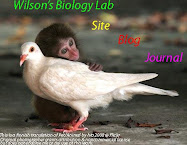Dendritic cells are an important component of the immune system. They reside in our tissues and bloodstream in their immature form. When they are exposed to a pathogen, they use sucker like projections from their many “arms” to capture it and eat it. Once ingested, they break the pathogen down and isolate the antigens that are specific to this pathogen, after which they travel through the blood system or the spleen to one of the Lymph nodes. Here they attempt to find the B and T-cells that allow our bodies to fight off pathogens. Interestingly, the dendritic cells also appear to determine if killer T-cells or antibodies are produced as a response to the pathogen.
Some scientists are attempting to use this phenomenon to inoculate our bodies against cancer. With some cancer patients, scientists are taking monocytes, cells that become either macrophages or dendritic cells, and culturing them along with antigens of the specific cancer the patient has. Once the dendritic cells mature and are ready to present the antigen to B and T-cells, the scientists inject them back into the patient. Although this does not cure cancer, or allow the body to completely fight it off, it has been show to make patients immune responses stronger than they would have been. However, there are some problems with this technique. Because cancers are mutating by definition, it is possible that the cancer could stop presenting the antigen that the body was targeting, rendering the vaccine useless. Also, if the antigen the scientists have isolated is present elsewhere in the body, it could lead to the body destroying other things than the cancer.
Another thing scientists are attempting to learn about dendritic cells is how to shut them down. In autoimmune diseases, dendritic cells appear to be hyperactive. For example, when a patient has lupus, it appears that their dendritic cells mature in their blood stream, due to a protein that their cells release, and then ingest the patient’s DNA, which they then present to a B and T-cell, creating an immunity to the bodies own DNA. By learning more about the mechanisms that control dendritic cells, scientists hope to eventually be able to control our immune system responses.
-Dylan Karle
Source: Scientific American, November 2002 issue
Monday, May 3, 2010
Subscribe to:
Post Comments (Atom)




No comments:
Post a Comment